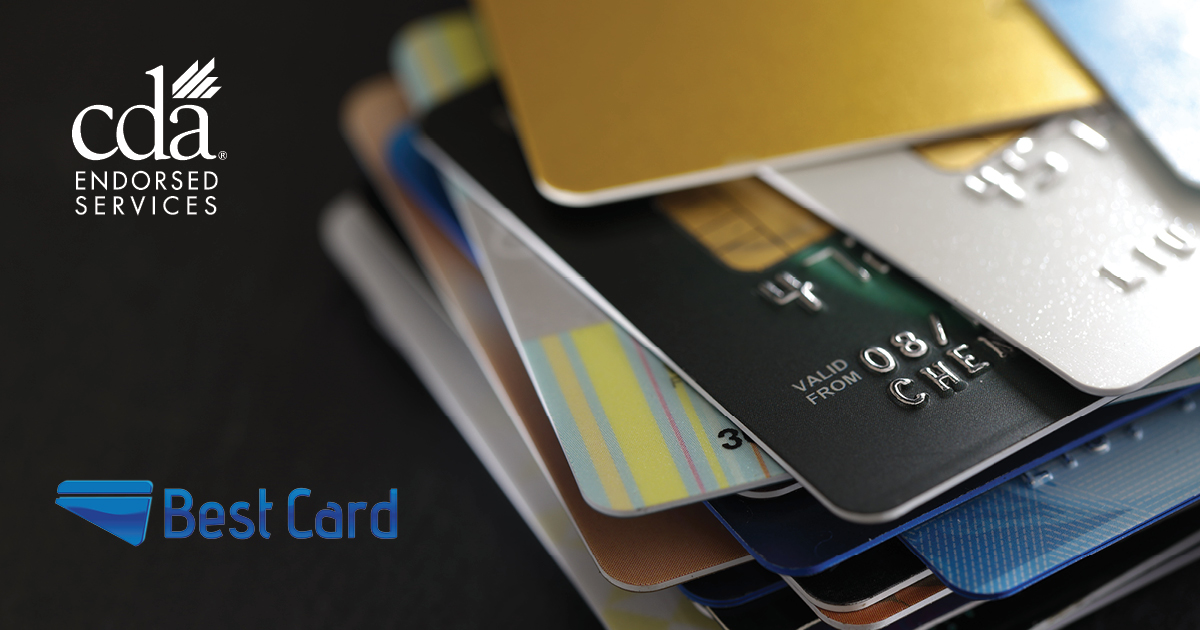As dental practices seek ways to lower payment processing and other administrative costs, they may consider the common practice of adding a surcharge to patients’ credit card payments. Some credit card processing companies aggressively promote this model, and practice owners need to understand the potential costs and requirements to make informed decisions.
Surcharging is legal in most states, including California, but practices should balance their decision to use it with potential impacts to patient satisfaction and long-term revenue. The experts at Best Card, CDA’s Endorsed-Service partner for payment processing, share three factors to consider before your dental practice implements a surcharge.
1. Patient satisfaction
Start by comparing the cost of attracting new patients and their value to your practice to potential savings or loss from surcharges, just as you would other price increases or change in services.
- On average, practices invest $150-$300 to attract a new patient and can expect to earn $4,500 over the course of that patient’s relationship with the practice.
- Under a 3% surcharge model, the patient pays a fee of $7.50 on a $250 charge.
The 3% surcharge model effectively shifts the cost of processing fees to the patient. The practice offsets its processing costs, but the additional fee can be enough to motivate some patients to seek services elsewhere. Research shows that 55%-75% of customers are less likely to return to a business that imposes surcharges, though this can be mitigated depending on how well the practice can communicate the charge.
2. Costs vs. convenience
The bottom-line savings of surcharging are not always as clear as credit card companies may make them appear. Most programs require payment of a flat monthly fee, typically $40 or more, while patients are charged an additional 3%-4% on their transactions.
An additional complication arises with virtual credit cards, often issued by dental plans. Since these cards are programmed with an exact balance, they will decline if a surcharge is added. Industry regulations require that all credit cards be surcharged if even one is surcharged, so a dental practice would need to lower service fees to accommodate the VCC’s exact balance, effectively absorbing the surcharge cost itself.
CDA-sponsored legislation signed into law last month protects dentists from predatory VCC practices. Effective April 1, 2026, the new law will require plans to make opting in or out of VCC payments clear and easy. Plans must also notify dentists of alternative payment options and any associated fees. With this legislation, dentists will have greater choice and cost transparency and experience less stress when choosing an alternative to VCC payments.
3. Regulations
Dental practices considering surcharging will also need to navigate specific restrictions:
- Visa, Mastercard, Discover and American Express each have strict guidelines that must be followed.
- Debit cards cannot be surcharged under any circumstances.
- Businesses cannot surcharge customers from states where surcharging is illegal, even if the business is in a state that permits surcharging.
- If adding a fee based on the card type, the business must comply with card brand regulations and state and federal laws.
- In California, SB 478 regulates how additional fees are disclosed and applied, requiring businesses to post clear notices. All fees must be included in the advertised price, so the price for a dental patient’s procedure quoted in their treatment plan must include the surcharge amount.
Surcharging alternatives
Many practices find that increasing treatment pricing by a modest percentage, without adding a separate surcharge, is a better way to offset rising operational costs. This strategy allows practices to maintain transparency with their patients while avoiding some patients’ negative perceptions of surcharges.
Support for CDA members
The experts at Best Card can help streamline credit card processing for CDA members, including support to comply with all regulations. Members benefit from consistently low rates and transparent processing, whether surcharging or using traditional pricing. Request a cost comparison or learn more about Best Card online or connect with a Best Card representative at 877.739.3952.

